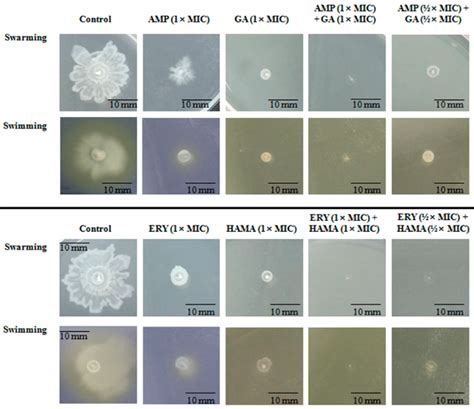
An Oklahoma toddler is fighting for her life after contracting multiple strains of E. coli, believed to be from swimming, prompting health officials to investigate potential sources of contamination.
Oklahoma City – A two-year-old girl from Oklahoma is battling a severe E. coli infection after a recent swimming outing, with doctors confirming the presence of multiple strains of the bacteria in her system. The toddler, identified as Presley Mitchell, was initially taken to a local hospital after exhibiting symptoms including severe stomach cramps, diarrhea, and vomiting. As her condition deteriorated, she was transferred to a specialist pediatric intensive care unit, where she remains in critical condition.
“This is every parent’s worst nightmare,” said Cheyenne Mitchell, Presley’s mother, in an interview with local news outlets. “One minute she’s splashing around in the water, and the next, she’s fighting for her life.” The family is now grappling with the emotional and financial strain of Presley’s hospitalization, as medical professionals work tirelessly to combat the aggressive infection.
The Oklahoma State Department of Health has launched an investigation to determine the source of the E. coli outbreak. Investigators are collecting water samples from various recreational water sources, including pools, splash pads, and natural bodies of water frequented by the family in the days leading up to Presley’s illness.
“We are taking this situation very seriously,” stated Dr. Melissa Brower, a state epidemiologist leading the investigation. “Our priority is to identify the source of the contamination and prevent further infections. We are working diligently to collect and analyze samples, and we will provide updates to the public as soon as we have more information.”
E. coli, or Escherichia coli, is a diverse group of bacteria that can cause a range of illnesses, from mild gastroenteritis to severe, life-threatening conditions. While many strains of E. coli are harmless and live in the intestines of healthy humans and animals, others can produce toxins that cause serious illness. The most well-known toxin-producing strain is E. coli O157:H7, which can lead to hemolytic uremic syndrome (HUS), a severe complication that affects the kidneys and blood clotting.
The presence of multiple E. coli strains in Presley’s case is particularly concerning, according to medical experts. This could indicate exposure to multiple sources of contamination or a complex interaction of different bacterial strains within her system. Doctors are using a combination of antibiotics and supportive care to manage the infection and prevent further complications.
“Treating multiple E. coli strains can be challenging because different strains may respond differently to antibiotics,” explained Dr. David Allen, a pediatric infectious disease specialist at Oklahoma Children’s Hospital, who is not directly involved in Presley’s care. “It’s crucial to identify the specific strains involved and tailor the treatment accordingly.”
Health officials are urging the public to take precautions to prevent E. coli infections, especially during the summer months when recreational water activities are common. These precautions include:
- Washing hands frequently: Wash hands thoroughly with soap and water for at least 20 seconds, especially after using the toilet, changing diapers, and before preparing or eating food.
- Avoiding swallowing water while swimming: Teach children not to swallow water while swimming in pools, lakes, or other recreational water sources.
- Showering after swimming: Shower with soap and water after swimming to remove any bacteria that may be on the skin.
- Cooking food thoroughly: Cook meat, poultry, and eggs to the recommended internal temperatures to kill harmful bacteria.
- Washing fruits and vegetables: Wash fruits and vegetables thoroughly under running water before eating them.
- Avoiding cross-contamination: Prevent cross-contamination in the kitchen by using separate cutting boards and utensils for raw meat and produce.
The Oklahoma State Department of Health is also emphasizing the importance of reporting any suspected cases of E. coli infection to local health authorities. Early detection and treatment can help prevent serious complications and limit the spread of the bacteria.
The Mitchell family has set up a crowdfunding campaign to help cover Presley’s medical expenses. The campaign has already raised thousands of dollars, demonstrating the outpouring of support from the community. “We are so grateful for the love and support we have received from our family, friends, and even strangers,” said Mrs. Mitchell. “It gives us strength to keep fighting for Presley.”
As the investigation continues, health officials are reminding the public to stay informed and take necessary precautions to protect themselves and their families from E. coli infections. The case of Presley Mitchell serves as a stark reminder of the potential dangers of waterborne illnesses and the importance of maintaining good hygiene practices. The Oklahoma State Department of Health promises to provide regular updates as the investigation progresses, and is committed to ensuring the safety of public water sources. The department has also increased its public health education efforts, focusing on preventative measures against E. coli and other waterborne pathogens. Educational materials are being distributed to local communities, schools, and recreational facilities.
The incident has raised broader questions about the regulation and monitoring of water quality in public recreational areas. While pools and water parks are typically subject to regular inspections and treatment, natural bodies of water can be more challenging to monitor and control. Environmental advocates are calling for increased funding for water quality testing and stricter regulations to protect public health. “We need to ensure that our water sources are safe for everyone, especially children,” said Sarah Johnson, director of the Oklahoma Environmental Protection Agency. “This incident underscores the urgent need for greater investment in water quality monitoring and enforcement.”
The outcome of Presley Mitchell’s battle with E. coli remains uncertain, but her family and community are rallying behind her, hoping for a full recovery. The case has also sparked a renewed focus on public health and water safety, with the aim of preventing similar tragedies in the future. The Oklahoma State Department of Health continues to urge anyone experiencing symptoms of E. coli infection to seek medical attention immediately. Symptoms can include severe stomach cramps, diarrhea (often bloody), vomiting, and fever. Early diagnosis and treatment are crucial for preventing serious complications, such as hemolytic uremic syndrome (HUS), which can lead to kidney failure and death. The health department is also working closely with local healthcare providers to ensure they are equipped to diagnose and treat E. coli infections effectively. This includes providing updated guidelines on testing, treatment, and reporting procedures.
In the wake of Presley’s illness, several local swimming facilities have voluntarily closed for additional cleaning and disinfection. These facilities are taking extra precautions to ensure that their water is free from harmful bacteria and that their facilities are safe for public use. The Oklahoma State Department of Health is providing guidance and support to these facilities to help them implement best practices for water safety.
The investigation into Presley’s case is ongoing, and health officials are exploring all potential sources of contamination. This includes not only recreational water sources but also food sources and contact with animals. E. coli can be transmitted through contaminated food, water, or contact with infected animals or people. The health department is working to identify any common links between Presley’s case and other recent cases of E. coli infection in the area.
The Centers for Disease Control and Prevention (CDC) is also providing technical assistance to the Oklahoma State Department of Health in its investigation. The CDC has extensive experience in investigating and controlling E. coli outbreaks, and its expertise is valuable in helping to identify the source of the contamination and prevent further infections.
The Mitchell family continues to update the public on Presley’s condition through social media. They are grateful for the outpouring of support they have received and are asking for continued prayers for Presley’s recovery. The family hopes that Presley’s story will raise awareness about the dangers of E. coli infection and encourage people to take precautions to protect themselves and their families. “We want to make sure that no other family has to go through what we are going through,” said Mrs. Mitchell. “E. coli is a serious illness, and it can have devastating consequences.”
The Oklahoma State Department of Health is committed to protecting the health and safety of the public. The department is working diligently to investigate the source of Presley’s E. coli infection and to prevent further infections. The department is also providing information and resources to help people protect themselves from E. coli and other waterborne illnesses. The incident serves as a reminder of the importance of public health surveillance and the need for continued investment in water quality monitoring and control. As the investigation continues, the focus remains on ensuring the safety of public water sources and preventing future outbreaks of E. coli and other waterborne illnesses. The health department is collaborating with local communities, healthcare providers, and other stakeholders to implement comprehensive strategies for preventing and controlling these infections.
The long-term effects of Presley’s E. coli infection are still unknown. Even if she recovers fully, she may experience long-term health problems as a result of the infection. Hemolytic uremic syndrome (HUS), a serious complication of E. coli infection, can cause permanent kidney damage and other health problems. The Mitchell family is prepared to provide Presley with the ongoing medical care she needs, regardless of the outcome of her current battle with E. coli.
The community continues to rally around the Mitchell family, providing emotional and financial support. Local businesses are organizing fundraisers to help cover Presley’s medical expenses. Schools and churches are holding prayer vigils for her recovery. The outpouring of support demonstrates the strength and resilience of the community.
The Oklahoma State Department of Health is urging anyone who has recently experienced symptoms of E. coli infection to seek medical attention immediately. Early diagnosis and treatment can help prevent serious complications and improve the chances of a full recovery. The department is also reminding the public to take precautions to prevent E. coli infections, such as washing hands frequently, avoiding swallowing water while swimming, and cooking food thoroughly. These simple steps can help protect people from this serious illness.
The case of Presley Mitchell has highlighted the importance of public health and the need for continued vigilance in protecting public water sources. The Oklahoma State Department of Health is committed to ensuring the safety of public water sources and preventing future outbreaks of E. coli and other waterborne illnesses. The department will continue to work with local communities, healthcare providers, and other stakeholders to implement comprehensive strategies for preventing and controlling these infections.
The incident also underscores the importance of parental awareness and vigilance regarding potential health risks associated with recreational activities. Parents are encouraged to research and assess the safety of swimming facilities and other recreational environments before allowing their children to participate. They should also be aware of the symptoms of E. coli infection and seek medical attention promptly if their child develops any of these symptoms.
The investigation into Presley’s case is expected to continue for several weeks. Health officials are working diligently to gather all the necessary information to identify the source of the contamination and prevent further infections. The Oklahoma State Department of Health will provide regular updates to the public as the investigation progresses.
The Mitchell family remains hopeful that Presley will make a full recovery. They are grateful for the support they have received from the community and are asking for continued prayers for Presley’s recovery. The family hopes that Presley’s story will raise awareness about the dangers of E. coli infection and encourage people to take precautions to protect themselves and their families.
The Oklahoma State Department of Health is committed to protecting the health and safety of the public. The department will continue to work to prevent and control E. coli infections and other waterborne illnesses. The department encourages the public to stay informed and take necessary precautions to protect themselves and their families.
Frequently Asked Questions (FAQ):
1. What is E. coli and how can it make you sick?
E. coli (Escherichia coli) is a type of bacteria that lives in the intestines of humans and animals. Most strains are harmless, but some can produce toxins that cause illness. These toxin-producing strains, like E. coli O157:H7, can lead to symptoms like severe stomach cramps, diarrhea (often bloody), and vomiting. In severe cases, it can cause hemolytic uremic syndrome (HUS), a life-threatening condition that affects the kidneys and blood clotting. According to Dr. David Allen, a pediatric infectious disease specialist, treating multiple E. coli strains can be challenging because different strains may respond differently to antibiotics, underscoring the need for tailored treatment.
2. What are the symptoms of an E. coli infection?
The symptoms of an E. coli infection can vary depending on the strain of bacteria and the person’s overall health. Common symptoms include:
- Severe stomach cramps
- Diarrhea (which may be bloody)
- Vomiting
- Fever
In some cases, E. coli infection can lead to more serious complications, such as hemolytic uremic syndrome (HUS), which can cause kidney failure and death. If you experience any of these symptoms, it is important to seek medical attention immediately. Early diagnosis and treatment can help prevent serious complications. The Oklahoma State Department of Health urges anyone experiencing these symptoms to seek medical attention immediately.
3. How can I prevent E. coli infection?
You can prevent E. coli infection by following these precautions:
- Wash your hands frequently: Wash your hands thoroughly with soap and water for at least 20 seconds, especially after using the toilet, changing diapers, and before preparing or eating food.
- Avoid swallowing water while swimming: Teach children not to swallow water while swimming in pools, lakes, or other recreational water sources.
- Shower after swimming: Shower with soap and water after swimming to remove any bacteria that may be on the skin.
- Cook food thoroughly: Cook meat, poultry, and eggs to the recommended internal temperatures to kill harmful bacteria.
- Wash fruits and vegetables: Wash fruits and vegetables thoroughly under running water before eating them.
- Avoid cross-contamination: Prevent cross-contamination in the kitchen by using separate cutting boards and utensils for raw meat and produce.
The Oklahoma State Department of Health emphasizes the importance of these preventative measures, particularly during the summer months when recreational water activities are common.
4. What is being done to investigate the source of the E. coli outbreak in Presley Mitchell’s case?
The Oklahoma State Department of Health has launched a comprehensive investigation to determine the source of Presley Mitchell’s E. coli infection. According to Dr. Melissa Brower, a state epidemiologist leading the investigation, their priority is to identify the source of contamination and prevent further infections. This includes:
- Collecting water samples: Investigators are collecting water samples from various recreational water sources, including pools, splash pads, and natural bodies of water frequented by the family.
- Exploring potential sources: The investigation is exploring all potential sources of contamination, including food sources and contact with animals. E. coli can be transmitted through contaminated food, water, or contact with infected animals or people.
- Collaborating with the CDC: The Centers for Disease Control and Prevention (CDC) is providing technical assistance to the Oklahoma State Department of Health in its investigation.
- Increased monitoring: Environmental advocates are calling for increased funding for water quality testing and stricter regulations to protect public health.
5. What support is available for the Mitchell family?
The Mitchell family has received an outpouring of support from their community and beyond. This includes:
- Crowdfunding campaign: The family has set up a crowdfunding campaign to help cover Presley’s medical expenses, which has raised thousands of dollars.
- Community support: Local businesses are organizing fundraisers, and schools and churches are holding prayer vigils for Presley’s recovery.
- Emotional support: The family is receiving emotional support from friends, family, and even strangers.
Cheyenne Mitchell expressed gratitude for the love and support, stating it gives them strength to keep fighting for Presley.









